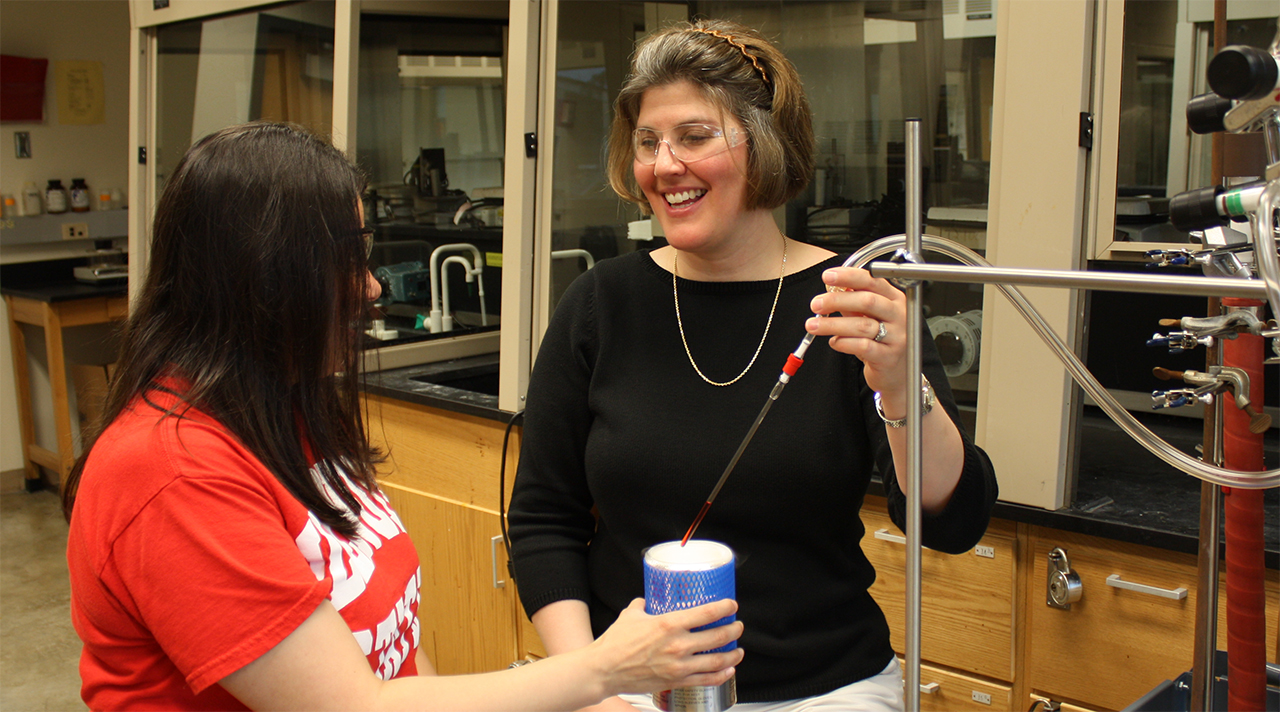Diversity initiatives rarely happen in a bubble. They generally pull together a combination of experts, areas, and funding. The Louis Stokes Alliance for Minority Participation, known as LS-AMP, at Illinois State is no different.
Administered through University College, LS-AMP offers support for students pursuing careers in science, technology, engineering, mathematics (STEM), any other STEM program, or teacher education in these fields. Drawing from the work of those in University College, and the Center for Mathematics, Science and Technology (CeMaST), LS-AMP connects students to faculty researchers, and opens up the world of academic research to underrepresented students.
“The Louis Stokes program offers an opportunity for Illinois State students to join a community of supportive peers, mentors, staff, and faculty who will help them reach their short-term and long-term goals in the STEM fields,” said Coordinator Christa Platt of Targeted Retention Services in University College, where the program is housed.
The faculty mentorship program specifically provides students one-on-one meetings with faculty members in the STEM discipline, where they can discuss academic needs, potential research projects, and explore prospective career options.
Faculty members who teach in the STEM field become involved in LS-AMP after taking a brief survey that outlines their style of mentorship, availability, and questions relating to the number of mentees they desire and year in school preferred. Students complete a similar survey, where they may indicate an interest in interdisciplinary research, three professors they are interested in working with, and what qualities they are looking for in a mentor. From there, Platt steps in to further establish the mentorship process.
“I meet with the student and follow up with them on their application. We discuss and decide a mentor based on the faculty they identified,” said Platt. “If a student identifies a faculty member who has completed a survey as a possible match, there is plenty of information to know if the student fits the faculty member’s preference.”
Professor of Chemistry Lisa Szczepura has been involved with LS-AMP as a faculty mentor since 1998, guiding her mentees through their coursework at Illinois State, discussing research and scholarship opportunities, and helping students plan for STEM-based careers post-graduation.
Szczepura believes the mentor/mentee relationship is an enriching experience for both the faculty member and the students because it is more personalized. “I ask my mentees what they would like to get out of this experience and what their interests are so our meetings can be more focused,” she said.
“As a society we have a need for college graduates who have majored in STEM fields, and we need diverse perspectives if we are going to solve many of the complex problems we face today,” says Szczepura. “LS-AMP really helps students network with other students and with faculty members in their field of interest. This is important as mentorship and undergraduate research have been cited as helping to increase the success rate of students in these challenging disciplines.”
According to Willy Hunter, director of CeMaST and principal investigator of the National Science Foundation-funded program, Illinois State has been part of the LS-AMP Illinois Alliance since it was established in 1993. Fourteen four- and two-year institutions are part of the alliance, with Chicago State University serving as the lead institution.
“LS-AMP offers a host of support programs and services to participating students, including academic success monitoring and workshops, financial assistance for those who partake in faculty-supervised research projects, opportunities to attend conferences and present their own research, and the faculty mentorship program,” said Hunter. “Through the support and experiences of LS-AMP, students are given the chance to strengthen their academic and professional goals in the STEM field while simultaneously joining the large, encouraging STEM community.”

